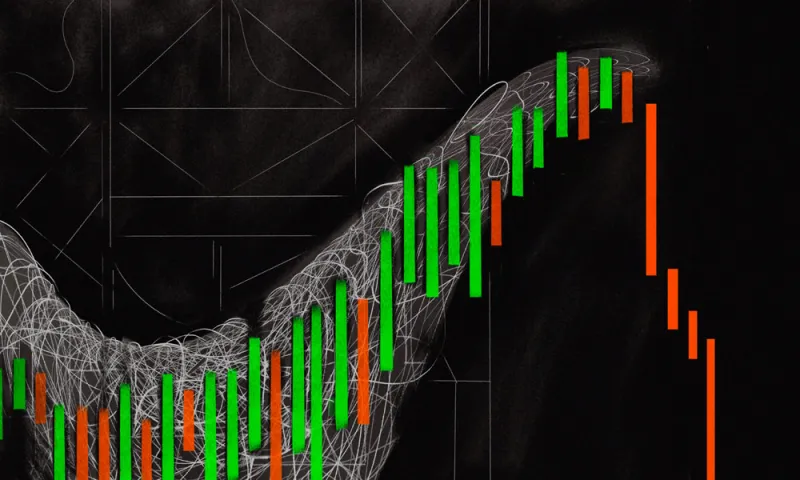Investors will keep reaching for riskier assets to get returns in a U.S. economy poised for growth this year, according to Natixis Investment Managers.
The “dash for trash” will continue, Jack Janasiewicz, portfolio manager and strategist at Natixis Investment Managers, predicted Tuesday during the firm’s web event discussing markets amid the easing Covid-19 crisis. Financial conditions are “highly accommodative,” he said, adding that “it’s tough to see anything but a continued stretch for risk assets.”
At the same time, some investors worry that massive fiscal stimulus and easy monetary policy could stoke high inflation, according to Janasiewicz. The Natixis portfolio manager said the concern often comes up in client conversations, particularly with the recent jump in Treasury yields, but that he isn’t expecting a meaningful rise anytime soon.
“Inflation is like Bigfoot,” said Janasiewicz. “I hear a lot of talk about him, but I still haven’t seen him.”
The Federal Reserve probably won’t start hiking rates until 2023, maybe the second half of that year, according to Esty Dwek, head of global market strategy at Natixis. As for this year, she said during the event that she worries the bond market will overact to a “healthy rise in yields.”
The jump in yields reflects a positive outlook for U.S. growth as the world moves closer to ending the pandemic, according to Dwek. She pointed to the accelerating rollout of Covid-19 vaccines, the $1.9 trillion coronavirus relief package, and expectations for higher company earnings as reasons for investor optimism.
This week, Morgan Stanley lifted its forecast for U.S. economic expansion in 2021 after faster-than-expected growth in the first quarter, according to a March 9 research report from the bank’s economists. They now predict gross domestic product will rise 7.3 percent this year, up 0.8 percentage points from its previous forecast.
“GDP is now on track to reach its pre-Covid level by the end of the current quarter,” the Morgan Stanley economists said in the report. “We expect the Fed to double-down on its dovish guidance at its March 16-17 meeting.”
[II Deep Dive: Active Funds Deliver Alpha in ‘Paradise’ for Stock Picking]
In a phone interview with Institutional Investor, Jim Caron, head of global macro strategies for Morgan Stanley Investment Management’s fixed-income group, said he expects inflation won’t be “a material problem for a few years.” That’s because the U.S. is recovering from such a large gap in output as a result of the pandemic, he explained.
Ten-year Treasury yields have risen quickly this year because of the larger Covid-19 stimulus package and stronger-than-expected retail sales in February, according to Caron. But “markets have been able to absorb what is seemingly almost like an interest-rate cycle,” he said.
Assets lower in credit quality that are “less rate-sensitive” and “more cyclically orientated” have been performing well and remain a good place to hunt for yield, Caron said. He expects that pro-cyclical sectors, such as energy and materials, will do well, and that travel, hospitality, and restaurants will also benefit from the reopening of the economy.
As for the stock market, Natixis’s Dwek said she has not seen a big rotation out of equities. “It’s mostly a rotation within equities,” she said, with the recent rise in bond yields accelerating asset flows into cyclical stocks and value sectors poised to benefit from a strengthening economy.
Meanwhile, financial conditions remain “very, very loose,” which means companies have access to capital to avoid default, according to Janasiewicz. “When you look at this all rolled up, you can still get your hands on money if you need it and are willing to pay up for it.”
Janasiewicz said he expects the Federal Reserve’s monetary policy to remain easy, partly because of the slack that remains in the labor market. This, together with the fiscal support and a reopening of the economy, should bode well for investors, according to Dwek.
“I don’t see why you wouldn’t want to stay in risk assets and in equity markets,” she said.







